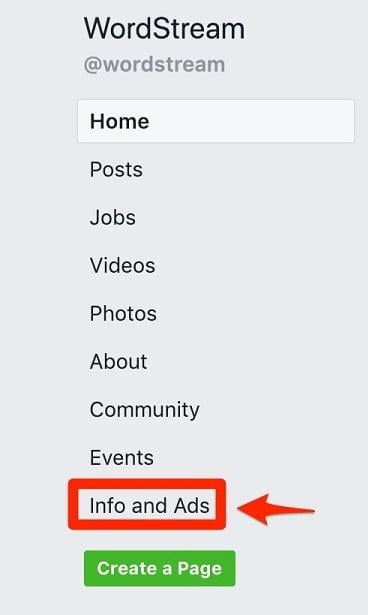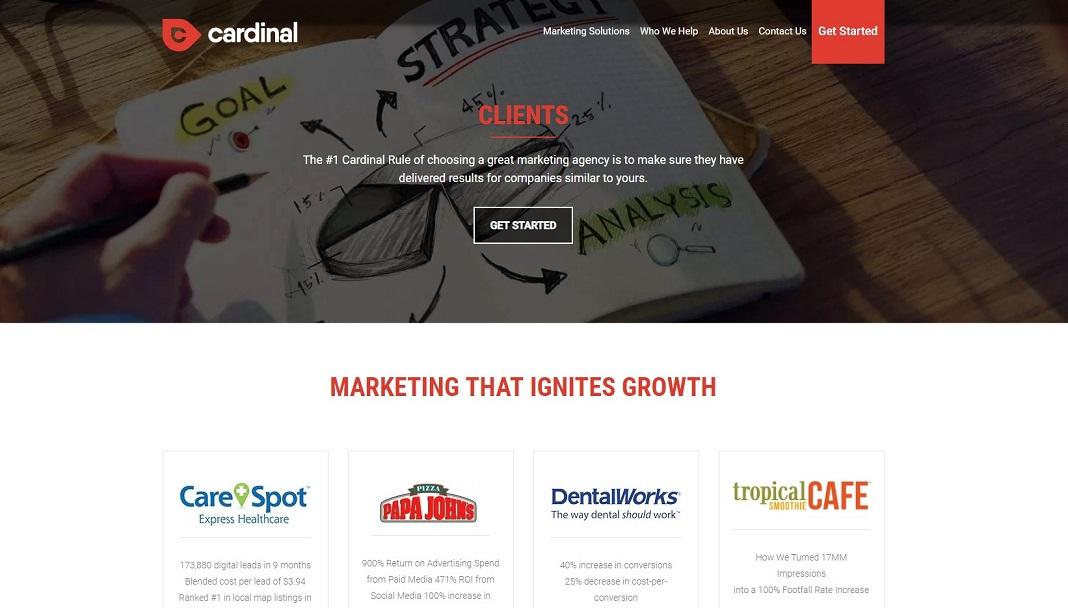
If you’re a small to medium-sized marketing agency, chances are you have one question consistently on your mind: “How do I get more clients?”
The solution can vary depending upon your niche, years of experience, overhead, and a variety of other factors. And many operations realize quickly that finding prospects isn’t all that difficult. Rather, it’s finding the right prospects that takes more time and more effort. Acquiring and maintaining high-quality clients is the PPC agency dream, but what are the best ways to do this?
Well, that’s why I’m here. Whether you’re looking to scale or just looking to make up for lost revenue, I’ll show you seven tried-and-true methods to prospect for high-quality PPC agency clients.
And if you’re seeking out prospecting strategies specific to COVID-19, check out this post.
1. Ask for referrals
It may seem like a no-brainer, but referrals are the quickest way to get prospects with a high propensity to close. Referrals are often how agencies are able to get started, but some owners forget to consistently ask their current customers for referrals over time. The reasons for this can vary. If a client relationship is going well, for instance, you may be apprehensive to ask for favors. If you’re a small operation (1-2 people), then it may not be in your client’s best interest to spread the word about your work, considering it will also spread your valuable bandwidth.
There are several pros and cons of getting referrals from current clients, but here are some that top my list.
Pros:
- Referrals come with built-in trust: Trust is something that takes time to build and nurture. When a client is referred to you through someone they know well, they will already have a higher level of trust in you than a cold prospect would. This is advantageous when it comes to client retention. If you do good work and prove to be reliable, that client will likely stick around longer and give you the benefit of the doubt more than your average customer. Trust = MRR
- There’s no cost: Another great bonus to referrals are how free they are. Unless you have a reward program for existing clients (not a bad idea, by the way) then referrals should cost you nothing monetarily.
- They strengthen relationships: If a client is willing to go out of their way to refer you to a friend or former colleague, it says a lot about how much they trust and value the work that you do for them. Seeing how far a client will go to help your business says a lot about your relationship to them.
Cons:
- They can send mixed signals: Although asking for referrals is a completely normal business practice, it may cause some folks to be suspicious. If you’re asking for referrals, your client may interpret that as a sign that you’re struggling and reaching out to them as a desperate last-ditch effort to save your business. This is a ridiculous conclusion to come to, but keep in mind who the people are that you’re asking referrals from. I would suggest picking clients you’ve had for quite some time and have done great work for and not the “what have you done for me lately” types. This also relates to my earlier point about your bandwidth. If the client knows you’re a one-man shop, they may not be too excited to share you.
- They can cause complications: If you have a great client and they refer you to someone else who is not so great of a client, this can cause some issues. Having a referral backfire is a real threat to small agencies and can damage their reputation as well as their relationship to the original client. If you have multiple referrals from a client who decides to discontinue your services, this may cause others to jump ship as well.
- They don’t necessarily scale: Producing endless referrals from referrals sounds possible in theory, but it’s fairly unrealistic. Most clients are unlikely to produce any referrals for you at all. Many businesses don’t like to share their secret weapons with other businesses, especially those within a similar space. Given the variability of referrals, you can’t rely on it solely as a tool for scale.
2. Try cold outreach
It’s advantageous for many agencies nowadays (especially smaller ones) to define a niche market to specialize in. The primary benefit of doing this is the ability to offer a hyper-specific value proposition to a select group of businesses. Speaking knowledgeably and authoritatively within a certain vertical or industry gives you a massive competitive advantage over the vast population of consultants and agencies vying for the same prospects. Clearly defining your niche also makes the practice of cold outreach a lot easier.
When you have a specific industry of clients that you’re looking to engage, it’s important to find directories, databases, and industry news sites to help you find and research potential prospects. For example, my target niche is tech startups and SAAS companies. I use relevant sites to research startups by vertical, funding stage, and employee headcount. These are all very valuable details that I take into consideration before reaching out. After identifying the companies that I find to be “good fits,” I then further research whether they are in market for a PPC agency. There are a few things I check first:
- How many employees do they have? How big is their marketing team? I will typically go for companies on the smaller side who are looking to grow but don’t have the manpower just yet to do so. This information can be found via LinkedIn.
- Do they have someone in a paid role in marketing? If the company has a small team with members having broad job titles, then it’s likely that they are wearing multiple hats and therefore may be in the market for some help. If there is no one specifically dedicated to paid acquisition, I will typically reach out. This information can also be found via LinkedIn.
- Are they hiring for a paid role? This could be a deterrent. If they have the resources and desire to manage PPC in-house, then it’s not likely that I’ll be able to persuade them otherwise. But, because I can charge less than the cost of a full-time employee, it’s still worth reaching out. This information can be found within LinkedIn or the company website.
- Are they running paid ads? This one is a valuable sales tool. A quick Google search will at least tell you if the company is running branded ads and a quick search into the Facebook business page “Info and Ads” section will tell you if it’s running any campaigns there.
If the company is running ads, you can look to make suggestions when you reach out to them (although, be careful not to come off as insulting). If it isn’t running ads, then it’s a great opportunity to start a conversation as to why. It’s a decent ice breaker, and you can get some insight into how they feel about paid advertising on those networks and their plans to scale operations in the future.
When it comes to building cold outreach lists, you have to accept the reality that a lot of folks aren’t going to respond regardless of how savvy you think your sales skills are. I would suggest doing all of the research first and compiling the best businesses within a Google sheet with columns for the business’s name, the primary contact who you will be reaching out to, a link to the website, a personalized message, and a column for you to check off whether you contacted them or not.
The option to buy email lists is always available, too. However, I’m averse to that method of prospecting. Paying for LinkedIn’s sales platform may come in handy, though, taking into consideration that you will be sending a number of connection requests and messages. My theory with cold outreach is to try to do it for free as much as you can with the tools available to you. Try to be strategic with how you reach out to folks and how you convey your value to them. Over time, you will be able to refine your approach.
3. Attend networking events
In similar spirit as the cold outreach strategy, having a defined niche can simplify the act of pursuing business. Specific industries and verticals have numerous conferences and networking events to attend. Some of these may be on the pricier side, but if you are able to get one client from the event, it should be able to pay itself back in a month or two.
Networking events are also great opportunities to spread awareness of your business and brand. I would suggest having business cards made specifically for these events that conveys how vertical-focused your services are. I personally use moo.com to affordably order mine.
If you can’t physically attend or want to make more connections than a shorter event allows, you can also take to social media to hop on the trending hashtags for the conferences. In my experience, conferences push social media interaction and engagement throughout their events with hashtags and discussions.
If you are a very small agency, another great way to get out and network would be to sign up for a shared workspace, like WeWork or Workbar. You may find that the monthly cost of these areas is typically very high ($300+ for a “hotseat” in WeWork that is essentially a glorified cafeteria table). The strategy here is to sign up for a month or two to gain access to their network. WeWork has a ton of professionals from various industries who use their space. You can sporadically sign up for different locations around the city near you and use it as a networking tool.
4. Spend on ads
It wouldn’t be a proper list for agency prospecting strategies without mentioning the one thing that you most likely do best: paid media. Of course, you may want to establish your agency a bit before embarking on any extensive paid endeavors. My suggestion would be to figure out a budget that is doable for you to experiment with after you ensure that your brand and website are in a place where your dollars will be spent effectively.
Creating highly targeted ads for Facebook and LinkedIn may prove to be the most fruitful, as paid search can be rather competitive from an agency keyword perspective, unless you are able to find keywords related to your niche that have lower competition and high intent. I’ve found that driving traffic to my site through content has allowed me to subsequently use remarketing as a tool to push free assessments and lower funnel offers to varying degrees of success. Although many clients have abandoned Twitter as a driving force for business, I’ve found it to be a relatively useful prospecting tool on the agency side. You can target those industry conference keywords and hashtags sponsored ads, which can help you get some awareness for the ones you are unable to attend physically.
If your end goal is to have a fully scalable agency with substantial MRR and a number of employees, it’s inevitable that you will have to create a fully fleshed out paid strategy. For small agencies, sporadic quarterly bursts can be enough to move the needle.
5. Send direct mail
Once you get past the irony of a digital marketing agency sending direct mail, you may find that it’s a worthwhile strategy. A clever idea is to send a flashy piece of branded collateral with a specific landing page URL on it. The unique URL can send the target prospect to a totally non-creepy personalized landing page that can be used to persuade them to take an action.
6. Create content & partnerships
Producing content is a great way to showcase your expertise and to address unique issues that individuals within your niche face. Writing content for your agency’s blog can be a time-consuming but effective way to sculpt your brand. It also allows you to have collateral for promotion on paid social.
Another option is to form strategic partnerships and produce content as a guest writer. I would argue that this is even more valuable when it comes to prospecting and growing your agency.
Identifying news websites and businesses that complement your own within your niche for partnerships is a highly effective strategy. “Content” itself isn’t confined to just blog posts, either. Guest appearances on podcasts, webinars, and speaking events, for instance, all count as content. These opportunities all broadcast your agency to an audience who might not otherwise find you. And, a bonus, it also gives you a tremendous amount of social proof to be involved with businesses who provide complementary solutions and are well known within the space you’re attempting to prospect within.
7. Keep case studies
A common question you may receive when you are a relatively young agency is “Do you have any case studies?” If prospects are coming into your pipeline as anything but referrals, then it gives them an extra layer of security to know there is some proof to back up your claims. After you build strong relationships and do great work for some businesses, you should look to have case studies made as soon as possible.
Writing these in-house is ideal, but, if you don’t have the time or the skills, you can outsource. Case Study Buddy, for example, has you provide some background information to start. Then they take care of everything from interviewing your client and sculpting a narrative that both sides approve of. The case study itself is beautifully designed, and they have a number of formats and options available for you to choose from. Showcasing your success on your site adds a layer of social proof that can be the difference maker for a prospect to sign on with you over your competitors.
Keep your foot on the pedal
Acquiring new business is rarely an easy endeavor, especially within a crowded digital marketing landscape. You may spend countless hours on calls and account audits before you land any substantial deals. The import thing to keep in mind when you’re starting out is to clearly define the ideal client that you want to work with. This will make marketing your agency’s brand much easier over time. The important lesson is to never become too complacent with your current level of business and to always strive to expand your agency within the vertical you have established.















